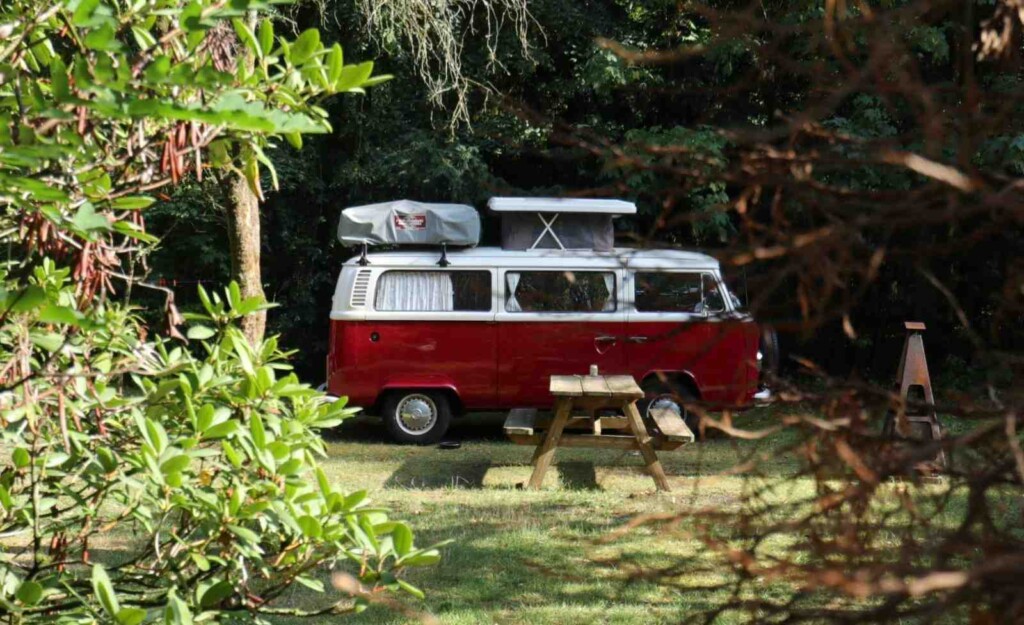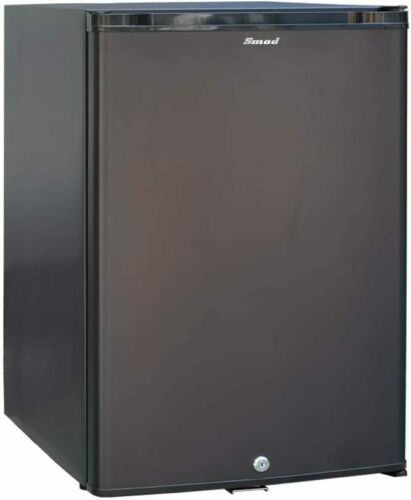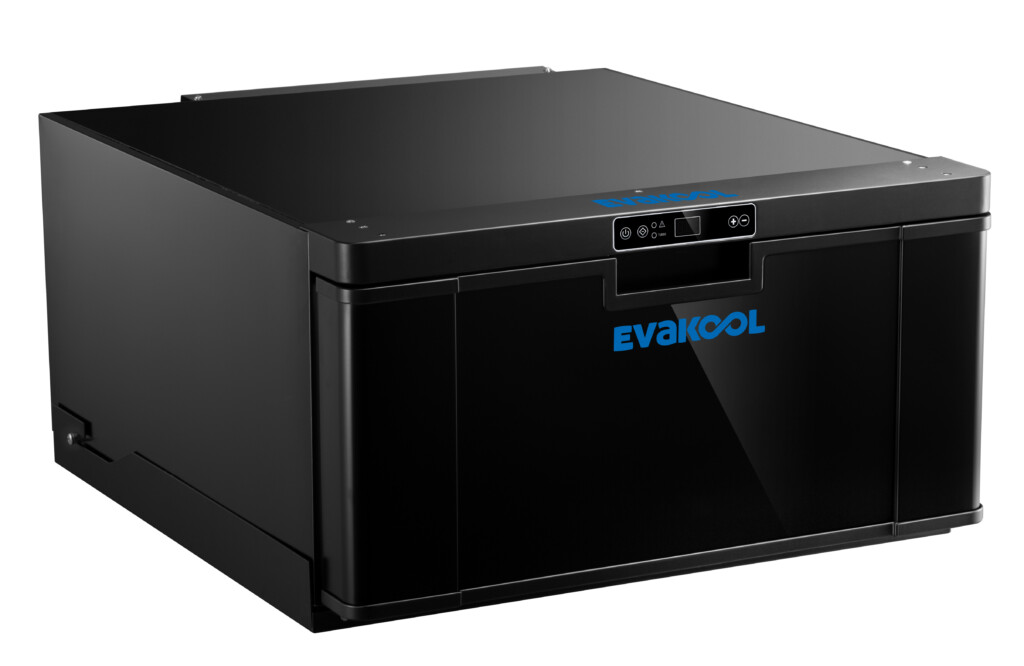Choosing a fridge for your VW Bus is an important decision that shouldn’t be taken lightly. Your living space is small and a fridge could take up a significant amount of space in it. If you do decide to install one, the size, style, ergonomics, and power supply will all impact your daily living. It is, therefore, really important to make a fully informed decision about the fridge you’d like to invest in. To help guide you in your decision, we thought we would begin by offering you these two scenarios.
Scenario one: you’ve driven half way across the country in your beautifully renovated VW Bus to the seaside. It’s a hot day and the drive was long and tiring. As a reward, you reach into your cupboard for a lukewarm beer on the beach. You are not satisfied.
Scenario two: you’ve driven half way across the country in your beautifully renovated VW Bus to the seaside. It’s a hot day and the drive was long and tiring. As a reward, you reach into your fridge for a refreshingly cold beer on the beach. You are satisfied.
Ok so while cold beers are not the be-all and end-all of Buslife, these two scenarios do demonstrate how the little luxuries in life can make a big difference to the quality of it. For Buslifers, choosing a fridge is definitely one of them. As long as you have the funds to buy a fridge and the space to fit it in your bus, there’s no need to go without.
If you’re considering choosing a fridge but don’t know where to start, this article is for you. Not only do we discuss the benefits of installing a fridge, but we also take a deep dive into the different fridge types and their pros and cons. Plus, we share some of our favourite campervan fridges on the market too.
Should I install a fridge?
Keepin’ it fresh
So why is a fridge useful to have in your VW Bus besides simply providing the ability to crack open a cold one whenever you like? Of course, their main purpose is to keep food fresh. In fact, foods like meat and dairy rely on refrigeration for safe consumption. Having a fridge, therefore, allows you to let loose at the supermarket and buy whatever tickles your tastebuds animal-based or otherwise.
Greenhouse buses
VW Buses are like greenhouses on wheels. These small window-wrapped sardine cans can trap a lot of heat, particularly in the height of summer, causing food to spoil at record rates. Bananas turn black in the blink of an eye and bell peppers shrivel like an old lady on a sunbed. Not a good look.
Unless you’re planning to eat your fruit and veggies a day or two after purchase, they are more likely to end their life in the trash (or compost if you can) than in your belly. With a refrigerator, however, food will stay fresh for longer and you’ll end up with much less waste. Plus, it’s always a good idea to create extra ventilation with a skylight, which you can learn more about here.
Going off grid
This brings us nicely to our last point. The longer you can keep food fresh, the longer you can go off-grid. This makes a fridge an adventurous Buslifer’s best friend. When you go camping in the woods for a week, you need a reliable supply of food. After all, the adventure isn’t quite the same when you have to interrupt it with a trip to restock at Walmart half way through, right? Plus, the further off-grid you go, the harder it is to access food if you run out.



Which fridge is right for you?
There are three types of fridges suitable for VW Buses and other moving vehicles. Compressor fridges (12V DC fridges), gas-power fridges, and three-way fridges that use a combination of 12V, gas, and mains power. These are different from refrigerators you find in homes that use a 240 AC power supply.
Many Buslifers struggle to choose between the three fridge types because each of them has its pros and cons. However, the best way of choosing a fridge is to decide which pros and cons are more important to you and your travel needs. Below we introduce the different fridges in more detail and offer insight into their benefits and drawbacks.
Gas fridges
Gas fridges run on a fixed supply of propane or butane to keep your food cool. The gas ignites a small flame that heats a liquid gas capsule at the back of your fridge which in turn keeps it cool. These fridges are perfect for buses without a solar setup.
Pros
- It isn’t dependent on sunlight for power which is ideal for those without solar panels
- You don’t have to worry about drained batteries
- It is generally quite easily to find gas refill stations
Cons
- Small risk of fire and gas leaks
- You need somewhere to store a 7kg gas cylinder or larger
- Gas comes at a cost whereas solar power is free
- It can’t be kept on whilst driving
- It requires a flue fitting on your vehicle body
12V Compressor fridges
A 12V fridge, or compressor fridge, is a fridge that relies purely on a DC electricity supply for power. Your power supply can be generated through solar panels and through a split relay charger and stored in your batteries. Since a split relay charger relies on frequent engine activity to generate power, it is often not enough to continuously run a 12V fridge. This option is, therefore, more appropriate for buses with solar power.
Pros
- It’s the easiest to install and fix
- It generates the lowest temperatures
- As long as you have sunlight, you have a running fridge
Cons
- 12V fridges require a significant amount of power to run
- You may have to turn them off for a while on cloudy days
Three-way fridge
Three-way fridges cover all bases when it comes to power supply. On default, they run on gas. However, you can connect them to your batteries which allows them to be powered by solar panels or a split relay. Thirdly, you can also plug them into a mains supply where possible which is handy if you like stopping at campsites.
Pros
- Offers a more reliable stream of power
- You don’t have to worry about running your batteries low
- You spend less on gas
Cons
- Often the most expensive option
- Uses more power than a 12V fridge
- It’s the most complicated to install
What to consider when choosing your fridge
Finding a fridge that’s right for you goes beyond deciding what kind of power supply to use. There are a number of other factors from style to specifications that need to be considered before buying. As a result, the motorhome fridge market is rather overwhelming. If you don’t know exactly what you’re looking for before you start your fridge search, you may well find yourself melting in a puddle of despair beside your unrefrigerated food. Luckily, the factors listed below cover all fridge factors so that you can make an informed choice.
Fridge volume
Consider what you’d like your fridge capacity to be. The fresher food you consume, the likelier you are to desire a larger fridge. A fridge’s volume is measured in litres and most motorhome fridges range between 35 – 80 litres. However, they are most commonly either 45L, 60L, or 75L. Of course, the fridge’s size correlates to the volume and so fridges with 70 – 80 litre capacities are more suited to larger campervans rather than VW Buses.
Fridge sizes
The fridge’s size should be an additional consideration to the volume. After all, two fridges of the same volume could have completely different dimensions. For example, one could be short and deep and the other could be tall and slim. Therefore, you need to measure the living area of your VW Bus to figure out what sized fridge would best fit in the space you have available.
Fridge Power
If you’re leaning towards an electrically powered appliance like a compressor or three-way fridge, keep a look out for the wattage on their specification. Watts refers to the rate of energy transfer from the power source to the fridge. The higher the wattage, the more powerful the fridge. A standard motorhome fridge will use between 60-65 watts per hour. Fridges with lower wattage are usually cheaper, but less powerful. Therefore, you must consider how much more you are willing to pay for more power when choosing a fridge.
What style of fridge is right for me?
Now to consider what style of fridge would suit your personal preferences and the needs of your VW Bus. To help you choose, we have listed our top choice of fridge in each kind of available style. Since this is the last thing to consider before kitting your VW Bus a brand new fridge, you’re ready to start shopping!
Door fridge
Most motorhome fridges on the market are simply the same style as a small domestic fridge you might find in your home. They are characterised by a swinging door and shelving, sometimes with a freezer box in the top corner. Higher capacity fridges are most often made in this style. Since the shelving doesn’t keep items inside secure, these fridges come with a risk off spilling onto the floor whilst your bus is moving. So, look out for something with a lock!



The drawer fridge
The drawer fridge is ergonomically the best kind of fridge to buy. Fridges with shelving tend to create lots of dead space whereas drawer fridges can be stacked to maximum capacity. An even more crucial benefit is that your fridge contents cannot spill out of the door when you take those sharp corners. Drawer fridges are particularly useful for VW Bus owners because they tend to be shorter and wider, allowing you to store them under beds and benches to save on space. Unfortunately, these savvy designs do tend to cost more than a regular fridge.
Evakool DC40-DRW-AU 40 Litre Drawer Fridge/Freezer



Portable electric cooler
Portable electric coolers are essentially refrigerators, but open from the top like a chest or cooler. These types of fridges are designed to keep the cool are contained inside the compartment when the door is opened which is beneficial for those with limited electricity supply. After all, the quicker the cool air escapes when opening the fridge, the more power it must use to replace the cool air. Being portable (fitted with wheels), these fridges are perfect for Buslifers without an assigned fridge space in their kitchen area. Often, they are simply stored under the bed/benches or between the seats of the cab. Generally, portable electric coolers do not generate cool air as well as a standard style fridge.
F40C4TMP 12 Volt Refrigerator 45L



Can I get by without a fridge?
Absolutely! Somehow or other, the human race survived without a fridge for centuries before it was invented in 1913. And we believe that Buslifers can live a comfortable and happy Buslife without one too. Choosing a fridge is simply an added luxury for those that have the space, funds, and most importantly, the inclination.
There are three alternatives to choosing a fridge. The first is to invest in a cool box. While they may not chill your beers like a fridge would, they will lengthen the lifespan of your fresh food by protecting it from sunlight and heat. The second alternative is to adjust your diet to foods that do not require refrigeration and cannot spoil easily. The third is to make more frequent trips to the supermarket to buy and consume refrigerated food on the same day. Between these three fridge alternatives, you can easily enjoy your Buslife experience to the fullest. Plus, you’ll look forward to that cold beer even more when you order it at the pub!


